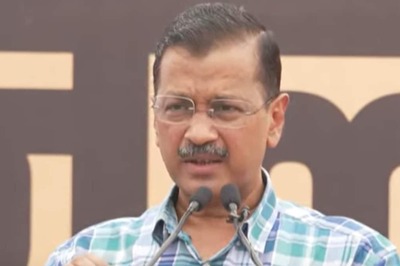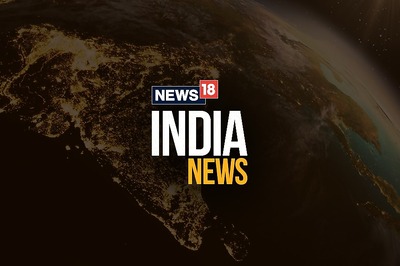
views
Prime Minister Narendra Modi’s monthly radio program Mann Ki Baat has become a popular platform for him to connect with people across India and share his vision for the country. Since its launch in 2014, Mann Ki Baat has allowed Prime Minister Modi to speak directly to Indian citizens without any intermediary, creating a sense of inclusivity and allowing people from all walks of life to share their views with the Prime Minister.
One of the key reasons why Mann Ki Baat has been so successful in connecting with people is that it allows the Prime Minister to speak directly to the citizens of India without any intermediary. Through the program, the Prime Minister has been sharing his thoughts on a range of topics, from governance and development to social issues and cultural events. He is also using the platform to highlight the achievements of his government and to address concerns and grievances that people may have.
During the Covid-19 pandemic, Prime Minister Modi used Mann Ki Baat to address the concerns of citizens and provide updates on the government’s response to the pandemic. He also used the platform to highlight the efforts of healthcare workers and essential service providers and to urge citizens to follow safety protocols.
The Prime Minister’s monthly radio program has not only resonated with the people of India but has also caught the attention of foreign leaders, who have hailed it as a unique and innovative platform for connecting with the masses.
In November 2020, US President-elect Joe Biden congratulated Prime Minister Modi on the 70th edition of Mann Ki Baat and praised him for using the program to connect with the people of India. “Congratulations to Prime Minister @narendramodi on the 70th episode of #MannKiBaat! It’s wonderful to see how this platform has brought together people from all across India to share their thoughts and ideas with their leader,” Biden had tweeted.
In July 2020, Australian Prime Minister Scott Morrison also praised PM Modi for his leadership during the Covid-19 pandemic and highlighted the role of Maan Ki Baat in connecting with the people of India. “I had a good discussion with my friend Prime Minister @narendramodi yesterday. It was great to hear about the incredible efforts by the Indian people in the fight against COVID-19. The Indian community has shown great resilience and “Maan ki Baat” has been a great way to connect with people,” Morrison had tweeted.
The reason the PM’s radio programme has achieved so much popularity is that Mann Ki Baat is not just a one-way communication channel. The program allows citizens to interact with the Prime Minister by sending their ideas, suggestions, and questions through various channels, including email, social media, and the MyGov portal. This creates a sense of inclusivity and allows people from all walks of life to share their views with the Prime Minister.
The high point of this program is its diversity as it is designed to be accessible to a wide range of audiences. It is broadcast in multiple languages, including Hindi, English, and regional languages, and is available on a variety of platforms, including All India Radio, Doordarshan, and social media. This ensures that people from all parts of the country, including those in remote areas, can access the program and participate in it.
One of the key benefits of Mann Ki Baat is that it allows the Prime Minister to focus on local issues that may not receive much coverage in the mainstream media. For example, in the June 2020 edition of the program, PM Modi spoke about the importance of preserving local languages and dialects. He highlighted the fact that many of India’s languages are in danger of disappearing and called on citizens to take steps to preserve them. This was a significant issue for many communities across the country, particularly those in rural areas, where local languages are an important part of daily life.
Another example of how Prime Minister Modi has used Mann Ki Baat to raise local issues having a national perspective is his focus on the issue of water conservation. In the July 2019 edition of the program, he spoke about the need to conserve water and called on citizens to take simple steps to reduce their water usage. He also highlighted the efforts of communities across the country who were working to conserve water, like the residents of Bundelkhand in Uttar Pradesh, who had successfully revived several lakes in the region.
In the October 2018 edition of Mann Ki Baat, the Prime Minister spoke about the issue of plastic waste and its impact on the environment. He called on citizens to reduce their use of plastic and highlighted the efforts of several individuals and organizations who were working to promote recycling and reduce plastic waste. This was a significant issue for many communities across the country, particularly those in urban areas, where plastic waste is a major problem.
The Prime Minister has also used Mann Ki Baat to highlight the achievements of local communities and individuals. In the August 2017 edition of the program, he spoke about the efforts of a group of women in Uttar Pradesh who had successfully constructed a toilet for their village. He praised their efforts and called on citizens to work towards the goal of achieving a clean India. This was an important issue for many communities across the country, particularly those in rural areas, where access to sanitation facilities is often limited.
In the November 2016 edition of Mann Ki Baat, he spoke about the issue of air pollution and its impact on public health. He highlighted the efforts of several individuals and organizations who were working to reduce air pollution, such as the residents of Dehradun who had successfully planted thousands of trees to combat air pollution in the region. This was a significant issue for many communities across the country, particularly those in urban areas, where air pollution is a major problem.
Another reason why Mann Ki Baat has been successful in connecting with people is that it focuses on issues that are relevant to their daily lives. The program covers a range of topics, including health, education, agriculture, and social issues such as cleanliness and women’s empowerment. By addressing these issues, the Prime Minister is able to connect with people on a personal level and show that his government is committed to improving their lives.
Mann Ki Baat has also been successful in creating a sense of national unity and patriotism. The program often features stories of ordinary citizens who have made extraordinary contributions to their communities or the country as a whole. These stories serve as inspiration to listeners and create a sense of pride in the achievements of their fellow citizens.
Mann Ki Baat has provided Prime Minister Narendra Modi with a unique platform to raise local issues and connect with people across the country. By focusing on issues that are relevant to their daily lives and leveraging the power of technology, the program has created a strong digital community of listeners who can engage with each other and with the Prime Minister on issues of national importance.
The program has become an important tool for the Indian government to communicate with citizens and has helped promote transparency, accountability, and national unity. As the program continues to evolve, it is likely to play an even greater role in shaping the national discourse and addressing the concerns of citizens across the country.
The author MLC and Vice-President, Uttar Pradesh BJP. The views expressed in this article are those of the author and do not represent the stand of this publication.
Read all the Latest Opinions here




















Comments
0 comment